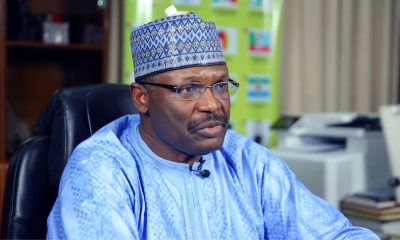Business
Institute To Promote Broad-Based Economic Dev
The new Executive Director of the African Institute for Applied Economics (AIAE), Dr Ifediora Amobi, says the institute is to promote rapid and broad-based economic development in Nigeria and Africa.
Amobi who recently took over from Prof. Eric Eboh, made the statement at a seminar on ‘`Pro-Poor Growth and Poverty Reduction in Nigeria,’’ organised by the institute in Enugu over the weekend.
Amobi said the institute had expanded its scope to go beyond applied economics and accommodate other sectors, including politics, good governance and research.
“We have already received a certificate for a change of name from AIAE to African Heritage Institute (AHI) because most of the things we do now are beyond applied economics,’’ he said.
The executive director said the institute would mobilise professionals and researchers to build skilled individuals.
He said that the body would undertake research and programmes that would inform and influence policies towards meeting the Millennium Development Goals and the Vision 20-20-20.
Amobi said that plans were underway to establish centres for each programme of the institute in order to attain the institute’s goals of economic development and poverty reduction.
Also speaking, a Researcher and Fellow of the institute, Dr Chukwuma Agu, who spoke on Regional Pro-poor Growth in Nigeria, observed that low educational standard and political disparities were determinants of poverty.
Agu noted that about 80 per cent of the Federal Government’s revenue came from oil but that growth and employment depended on non-oil sectors.
He stressed the need for government to focus more on the non-oil sectors, including agriculture, industry and education to improve its gross domestic product and reduce poverty.
Some participants at the seminar stressed the need for value orientation in tackling poverty.
A Permanent Secretary in the Imo State Ministry of Planning, Mr Callistus Ekenze, said that poverty would never be tackled in an atmosphere of lawlessness.
Ekenze cited indiscipline and lawlessness as some of the factors that hindered efforts aimed at tackling poverty.
The Anambra State Commissioner for Budget and Planning, Prof. Stella Okunna, called for increased research on issues relating to poverty.
A retired university teacher, Prof. Okwudiba Nnoli, called on researchers to shift emphasis from theories to methodology in handling economic development.
Business
FG Flaggs Of Renewed Hope Employment Initiative
Business
Kachikwu Makes Case For Increased NCI Fund To US$1bn … Timeline For Developing Oil Blocks
Business
FG Embarks On Sanitizing Mining Industry
-
Politics1 day ago
2027: Bayelsa APC Adopts Tinubu As Sole Candidate … As Lokpobiri, Lyon Shun Meeting
-
Sports1 day ago
GOtv Boxing Night 34 holds Dec. in Lagos
-

 Politics1 day ago
Politics1 day agoAlleged Smear Campaign Against Yakubu, CSOs Demand Apology From Uzodimma
-
Politics1 day ago
2027: Jega Condemns Premature Campaigns, Blames Elected Officials
-
Politics1 day ago
Why INEC Can’t Punish Politicians For Early Campaigns – Yakubu
-
Sports1 day ago
WCQ: NFF Denies Post Match Statement
-
Politics1 day ago
Stopping Natasha’s Resumption Threatens Nigeria’s Democracy – ADC
-
Sports1 day ago
Gov. Decries Delta’s Poor Performance At 2025 NYG

